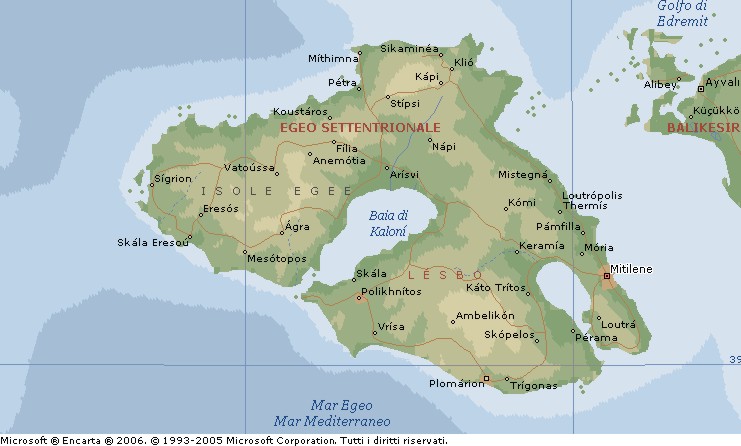Lessico
Alfeo di Mitilene
Alpheus
Mytilenaeus (Ἀλφείος
Μυτιληναῖος) the
author of about twelve epigrams in the Greek Anthology![]() , some
of which seem to point out the time when he wrote. In the seventh epigram (Jacobs)
he refers to the state of the Roman empire, as embracing almost all the known
world; in the ninth he speaks of the restored and flourishing city of Troy;
and in the tenth he alludes to an epigram by Antipater Sidonius. Now Antipater
lived under Augustus, and Troy had received great favours from Julius Caesar
and Augustus. (Strab. xiii. p. 889.) Hence it is not improbable that Alpheus
wrote under Augustus. It is true that in the fourth epigram he addresses a
certain Macrinus, but there is no reason to suppose that this was the emperor
Macrinus. Another difficulty has been started, on the ground that the eleventh
epigram was inscribed, as we learn from Pausanias (viii. 52. § 3), on the
statue of Philopoemen in Tegea, and that it is very improbable that such a
statue should have stood without an inscription till the time of Alpheus. But
the simple fact is, that no reason can be discovered for attributing this
epigram to Alpheus. (Jacobs, Anthol. Graec, xiii. p.
839.)
, some
of which seem to point out the time when he wrote. In the seventh epigram (Jacobs)
he refers to the state of the Roman empire, as embracing almost all the known
world; in the ninth he speaks of the restored and flourishing city of Troy;
and in the tenth he alludes to an epigram by Antipater Sidonius. Now Antipater
lived under Augustus, and Troy had received great favours from Julius Caesar
and Augustus. (Strab. xiii. p. 889.) Hence it is not improbable that Alpheus
wrote under Augustus. It is true that in the fourth epigram he addresses a
certain Macrinus, but there is no reason to suppose that this was the emperor
Macrinus. Another difficulty has been started, on the ground that the eleventh
epigram was inscribed, as we learn from Pausanias (viii. 52. § 3), on the
statue of Philopoemen in Tegea, and that it is very improbable that such a
statue should have stood without an inscription till the time of Alpheus. But
the simple fact is, that no reason can be discovered for attributing this
epigram to Alpheus. (Jacobs, Anthol. Graec, xiii. p.
839.)
Dictionary of Greek and Roman biography and
mythology
William Smith, Boston, 1867
Alfeu Mitileneu
Alfeu Mitileneu (Alpheus Mytilenaeus, Ἀλφείος Μυτιληναῖος) fou un poeta grec que va escriure una dotzena d'epigrames dels que foren incloses a l'antologia grega. Probablement va escriure en temps d'August per el que es dedueix dels seus propis epigrames (finals del segle I aC - segle I)
Commentarii
in Andreae Alciati![]() emblemata -1573
emblemata -1573
di
Francisco Sánchez![]()
